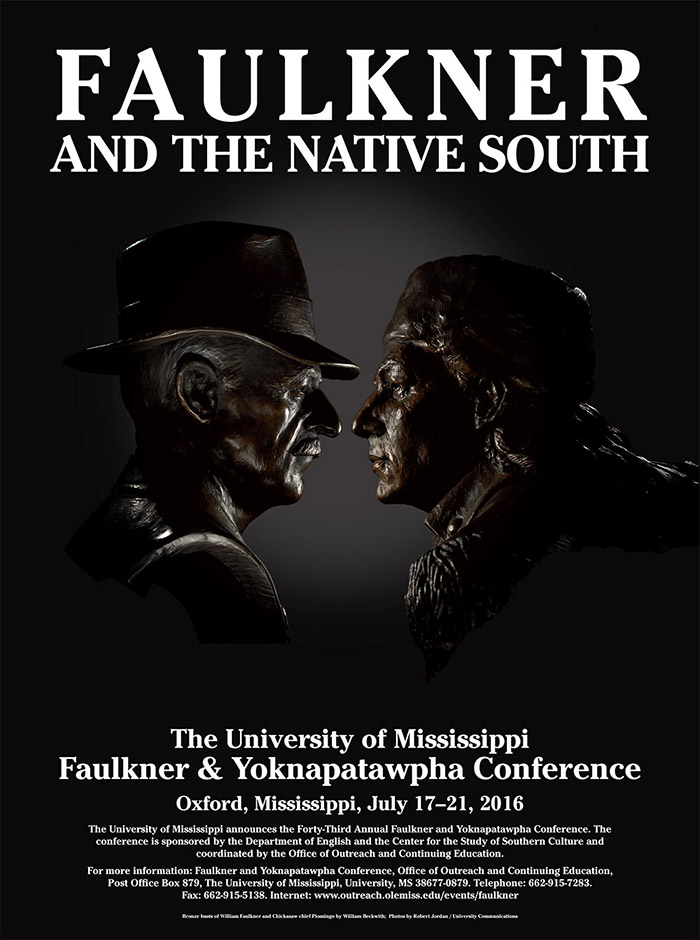
Indian Axle-Grease: Re-Imagining Removal
Location
Nutt Auditorium
Start Date
19-7-2016 1:30 PM
Description
In Requiem for a Nun (1951) and his semi-autobiographical essay “Mississippi” (1954) Faulkner chronicles the history of Yoknapatawpha beginning with the removal of the Chickasaws from what is today Lafayette County. Mohataha’s “x-mark” on the land deed marks the birth of Jefferson. Why does Faulkner attribute the grave act of signing the land away to a native woman? To answer this question, this presentation moves between history and fiction as it explores the significance of that gendered act and the symbolism of the “x-mark” in Faulkner’s work, treaty history, and Native American fiction. Following Scott Lyons, I argue that the “x” signature is a crossing, a sign of both consent and resistance to removal. Much like the historical Chickasaws and Choctaws of Mississippi, Faulkner’s characters are not helpless victims but agents who make choices within the limited and coercive circumstances of the removal period.
Relational Format
Conference proceeding
Recommended Citation
Trefzer, Annette, "Indian Axle-Grease: Re-Imagining Removal" (2016). Faulkner and Yoknapatawpha Conference. 14.
https://egrove.olemiss.edu/fy/2016/schedule/14
Indian Axle-Grease: Re-Imagining Removal
Nutt Auditorium
In Requiem for a Nun (1951) and his semi-autobiographical essay “Mississippi” (1954) Faulkner chronicles the history of Yoknapatawpha beginning with the removal of the Chickasaws from what is today Lafayette County. Mohataha’s “x-mark” on the land deed marks the birth of Jefferson. Why does Faulkner attribute the grave act of signing the land away to a native woman? To answer this question, this presentation moves between history and fiction as it explores the significance of that gendered act and the symbolism of the “x-mark” in Faulkner’s work, treaty history, and Native American fiction. Following Scott Lyons, I argue that the “x” signature is a crossing, a sign of both consent and resistance to removal. Much like the historical Chickasaws and Choctaws of Mississippi, Faulkner’s characters are not helpless victims but agents who make choices within the limited and coercive circumstances of the removal period.

